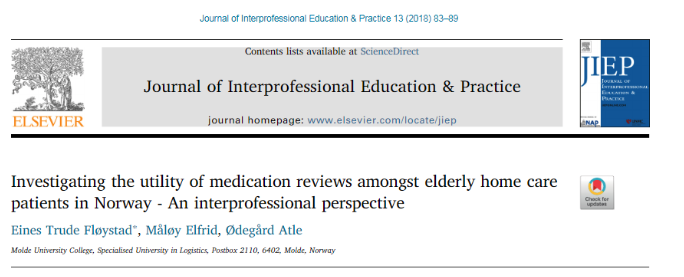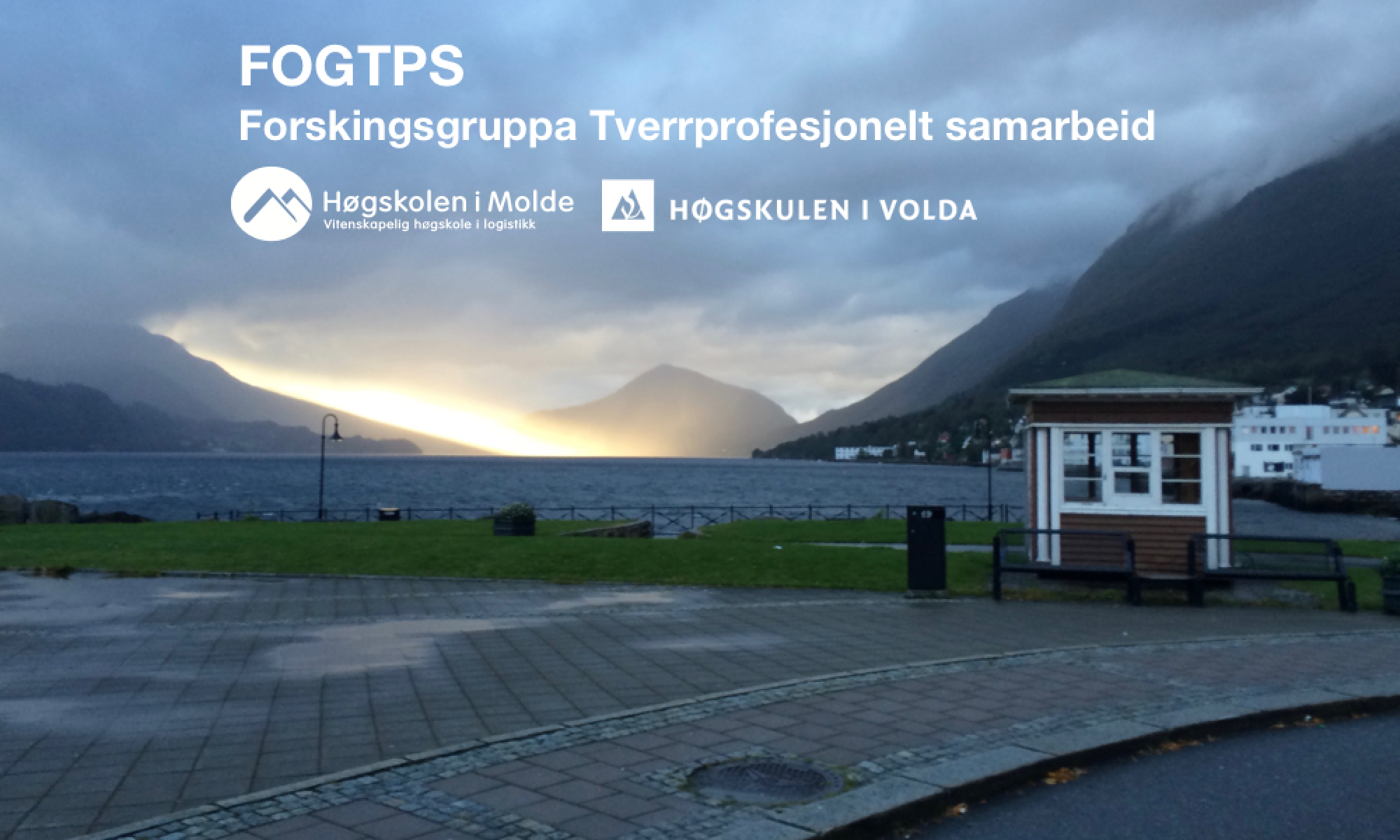Av Atle Ødegård
I en ny artikkel presenterer vi en studie som omhandler bruken av tverrprofesjonelle team i arbeidet med legemiddelgjennomganger i kommunene. Studien viser at dette er et viktig tiltak i kvalitetssikringen av medisinering til eldre multisyke – og hjemmeboende pasienter. Det er gjort lite forskning innenfor dette området. Tiltaket omtales internasjonalt som IMSs – dvs «interprofessional medication reviews».

https://www.sciencedirect.com/science/article/pii/S2405452618300855
ABSTRACT (fra artikkelen)
Background:Age-related changes in pharmacokinetics and pharmacodynamics, together with comorbidity and polypharmacy, require increased attention to handling medications of elderly patients receiving home care services. Because more care is taking place in the home, more health services will be needed within community health instead of at hospitals, especially for elderly patients. Increased transitions between hospitals and home may increase risks of medication errors due to a lack of accurate monitoring and interprofessional mis-communication. Interprofessional medication reviews (IMRs) are proposed to improve prescription practices.
Purpose:This study aimed to a) describe aspects of collaboration during IMR processes and b) explore how IMRs may contribute to strengthening service delivery for elderly home care patients.
Method:Two focus group interviews with general physicians (GPs) and nurses working in interprofessional teams running medication reviews amongst 15 elderly home care patients were conducted. Data were subjected to thematic analyses to generate findings.
Results:Two main themes emerged: i) patient safety and ii) working effectively together. Both nurses and GPs highlighted IMRs as necessary to increase patient safety and the quality of home care health services. They particularly emphasised the need for closer interprofessional communication and collaboration to exchange complementary competence and skills.
Conclusions:IMRs may be an effective approach to maintaining safety for increasing numbers of elderly patient scared for in their homes. For professionals to develop high-functioning teams when patients’ medications are rapidly changing, it is crucial to use effective communication channels.
